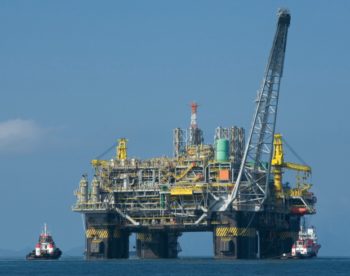
Corporations are also investing in a green-energy future as if a carbon-free world is a fait accompli.
The trends are clear. Oil and gas companies lose shareholder battles to climate activists. Automakers plan to go electric in the next decade. And financial institutions divest their managed funds from corporations invested in fossil fuels.
However, reports of carbon’s death are greatly exaggerated. Although it seems sensible to wean the world off oil, coal, and natural gas, the transition to 100 percent renewable energy is almost certainly unrealistic.
Indeed, notwithstanding the construction of new wind turbines and solar farms, the world will need fossil fuels for many more decades.
As one of the world’s most distinguished energy analysts, Daniel Yergin, argues, the shift to a net carbon-zero world “is likely to take longer, to be more expensive and to require more technical innovation than many now anticipate.”
The world depends on fossil fuels for about 80 percent of its energy. And in the 2020s, government budgets promoting the energy transition will be constrained by the heavy debt burden accumulated in the wake of the coronavirus crisis and the world’s worst recession in seven decades.
According to the International Energy Agency, carbon emissions will increase by 5 percent in 2021, with huge investment in coal-fired power stations across the non-OECD world.
Simply put, the policy to eliminate coal and especially oil and natural gas within three decades is not a cost-free exercise: it would hurt nations in terms of higher costs up and down the energy chain and countless lost jobs in carbon-intensive industries.
The green lobby claims that fossil fuels are on borrowed time and that wind power and solar panels will transform the energy landscape. But they are mistaken.
Writing in The New Map: Energy, Climate and the Clash of Nations (Penguin, 2020), Professor Yergin argues that “oil will maintain a pre-eminent position as a global commodity, still the primary fuel that makes the world go round”.
Solar and wind power still provide just a tiny share of the world’s total energy. They also struggle to replicate the reliability of oil and gas: today’s best rechargeable batteries for renewables have only a fraction of the energy density of hydrocarbons from gas and oil; so until this problem is rectified, there will always be a place for gas and oil. …snip…
In any case, the declining emissions of the developed world are likely to be dwarfed by the increasing emissions of the non-OECD world.
These nations account for about 65 percent of annual global emissions, as they try to grow their economies, reduce poverty and raise living standards.
Read more at The Australian ($)

















Ending the use of Fossil Fuels is based upon Politics and Junk Science just like with DDT based upon Junk Science,Politics and Carson’s Lies in her book Silent Spring
Articles such as that written by the IANS assume the world will be transitioning away from fossil fuels. The one article said that $91 billion invested in coal mines would be stranded assets. Yet, the death of fossil fuels is greatly exaggerated. Their use will increase world wide for some time.
From the article, “Although it seems sensible to wean the world off oil, coal, and natural gas.” This is totally false. There is no reason to decrease fossil fuel use. The predicted temperature increase predicted by most climate models does not match real world data. According to the IPCC there is no increase in extreme weather events.
The article did make some good points. The effort by the industrial world to reduce emission will be very costly and accomplish nothing as the developing world dramatically increases its use of fossil fuels. There is still no feasible way to store energy for when renewables are not available.
Apr 21, 2016 Fossil Fuels: The Greenest Energy
To make earth cleaner, greener and safer, which energy sources should humanity rely on? Alex Epstein of the Center for Industrial Progress explains how modern societies have cleaned up our water, air and streets using the very energy sources you may not have expected–oil, coal and natural gas.
https://youtu.be/BJWq1FeGpCw
Life without oil. What will you sacrifice at the Earth Altar?
https://uploads.disquscdn.com/images/6dafd5d9c9bc8e0cfe5f410026d757b45a3d2aef7126d1c121b4b01c188d046d.jpg
Politicians invent something in their minds and expect technology to rescue them, like “zero carbon”.
Calls for the defunding of the police don’t necessarily mean that those behind the calls are truly anarchists. They may simply be wanting the police to stop arresting some and start arresting others. In other words, it may be not so much about justice and more about power and who wields it.
Fossil fuels are at the heart of what looks like another power grab. So, no, the people who most fervently campaign against fossil fuels may not be merely “mistaken.” Some may well know exactly what they are doing. And that may have nothing to do with growing the economy, reducing poverty and raising living standards. Sometimes rabble-rousers simply benefit more from not fixing a problem. Or, even, from not fixing a non-problem.
That is because sometimes problems are all some people have to sell and a non-problem dressed as a problem is perfect. A non-problem can never be fixed and, thus, will never become obsolete.
Of course it’s not practical or real. John Kerry admits that western efforts to reduce carbon dioxide output , even to zero, won’t make a difference. It’s a morality play.